Nelson Mandela memorial service held at Westminster Abbey
- Published
Archbishop Desmond Tutu was among the speakers at the service, as Nicholas Witchell reports
A memorial service to celebrate the life of former South African President Nelson Mandela has taken place at Westminster Abbey in London.
The service was attended by nearly 2,000 people including Prince Harry, David Cameron, Archbishop Desmond Tutu and South Africa's deputy president.
Earlier, the Dean of Westminster, the Very Reverend Dr John Hall, announced a memorial stone to honour Mr Mandela would be placed in the abbey.
Mr Mandela died in December, aged 95.
South Africa's first black president, he led the country's transition from white-minority rule in the 1990s, after spending 27 years in prison for his political activities.
The Nobel Peace Prize laureate became one of the world's most revered statesmen after preaching reconciliation.
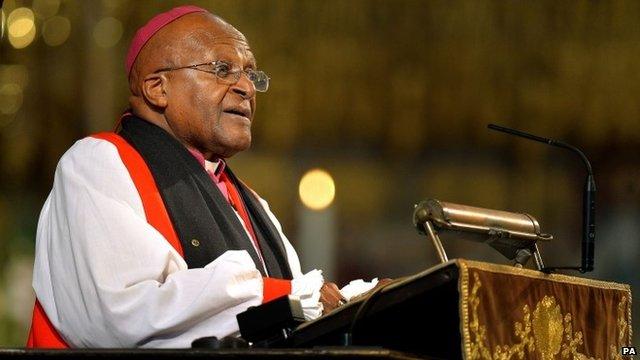
Archbishop Tutu thanked international anti-apartheid campaigners
Archbishop Tutu told the congregation there was worldwide veneration of Mr Mandela following his death because he had made everyone believe in peace.
"He made us believe that all, each one of us, we are made of goodness," he said.
"We are made for caring, we are made for loving, we are made for compassion, we are made for laughter, for peace."
Archbishop Tutu thanked those who supported the anti-apartheid movement.
He said Mr Mandela had been "appalled" by the apartheid system that spawned signs in South Africa reading: "Drive carefully - natives cross here."
"Without the anti-apartheid movement, without you extraordinary human beings, Mandela could so easily have died in prison," Archbishop Tutu said.
"Wonderfully, exhilaratingly, the entire world glued to its TV sets watched as this man emerged from 27 years of incarceration."
The service was attended by royalty, politicians and celebrities, including actor Idris Elba who starred as Mr Mandela in the film Mandela: Long Walk to Freedom.
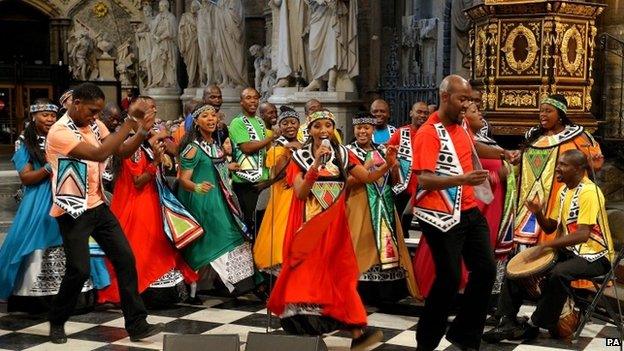
The Soweto Gospel Choir travelled from South Africa to take part
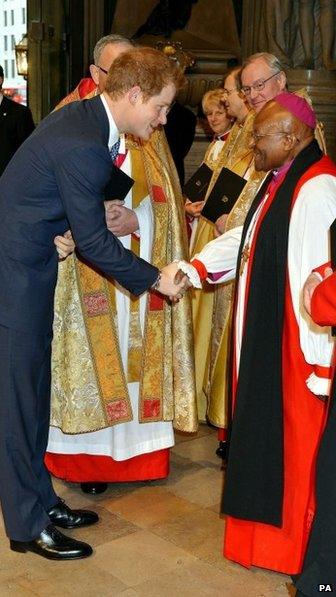
Prince Harry represented the Queen at the service
Former Northern Ireland Secretary and veteran anti-apartheid campaigner Peter Hain addressed the congregation.
He said Mr Mandela "revered" Britain and never forgot it, even during his harshest years in jail on Robben Island.
At the time, when the apartheid regime was at its most ruthless, there was a majority in the House of Commons against Mr Mandela and the African National Congress, Mr Hain said.
But "tens of thousands" of British citizens supported Mr Mandela's fight for freedom.
Mr Hain also spoke of the "great privilege" of having known Mr Mandela and his "impish and mischievous" sense of humour.
Mr Cameron attended the service with Deputy Prime Minister Nick Clegg and Labour leader Ed Miliband.
Others present included former UK prime ministers Sir John Major and Gordon Brown, Speaker of the House of Commons John Bercow and members of the cabinet including Health Secretary Jeremy Hunt.
The Archbishop of Canterbury Justin Welby and the leader of the Catholic Church in England and Wales, Cardinal Vincent Nichols, were also present.
Earlier, setting out plans for the memorial stone, Dr Hall described Mr Mandela as "one of the most remarkable world leaders of the last century".
He said: "His remarkable constancy under suffering stand as an example to everyone.
"In addition, his capacity for forgiveness and his generosity of spirit show what humanity at its best can achieve.
"His memorial in Westminster Abbey, justified in itself, standing amongst memorials to many of the greatest men and women of the world, not all of them British, will also prove to be a focus of contemplation and prayer for the gift of forgiveness and reconciliation in many communities and places in our troubled world."
Mr Mandela visited the abbey in July 1996 when, during a state visit, he laid a wreath at the Grave of the Unknown Warrior.
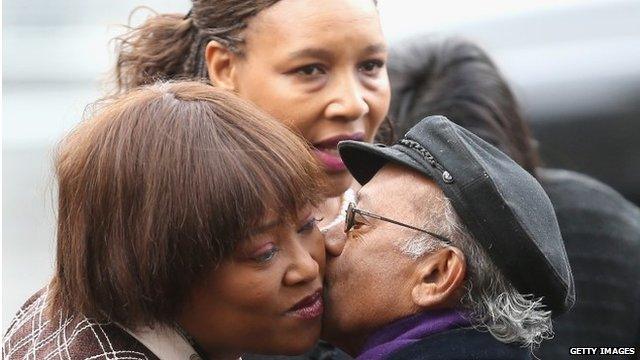
Mr Mandela’s daughters Zindzi Mandela and Zenani Mandela-Dlamini were greeted as they arrived at Westminster Abbey
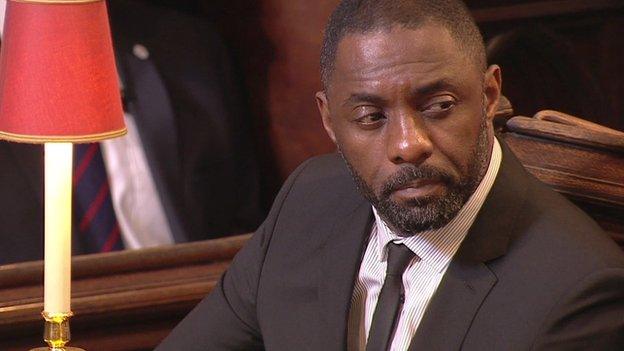
British actor Idris Elba, who portrayed Mr Mandela in the film Mandela: Long Walk to Freedom, was among a string of celebrities at the ceremony
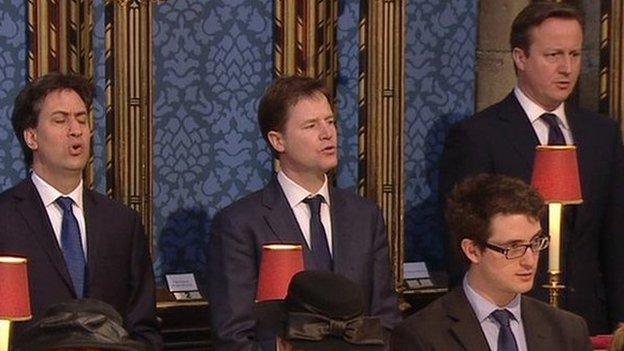
Labour leader Ed Miliband, Deputy Prime Minister Nick Clegg and Prime Minister David Cameron joined in the singing of the South African national anthem
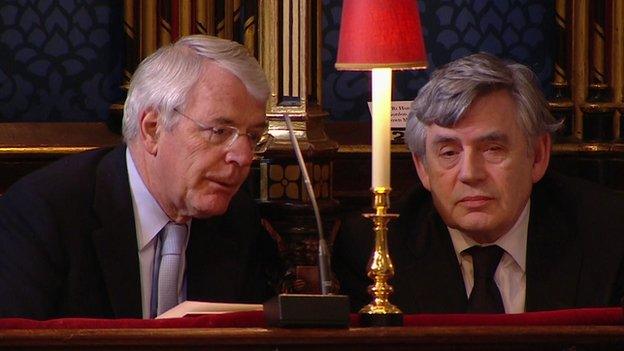
Former UK prime ministers Sir John Major and Gordon Brown were among the congregation
- Published3 March 2014
- Published5 December 2013
- Published5 December 2013
- Published15 December 2013
- Published6 December 2013